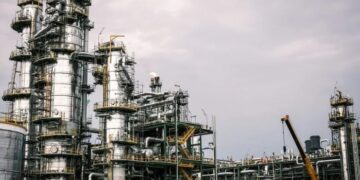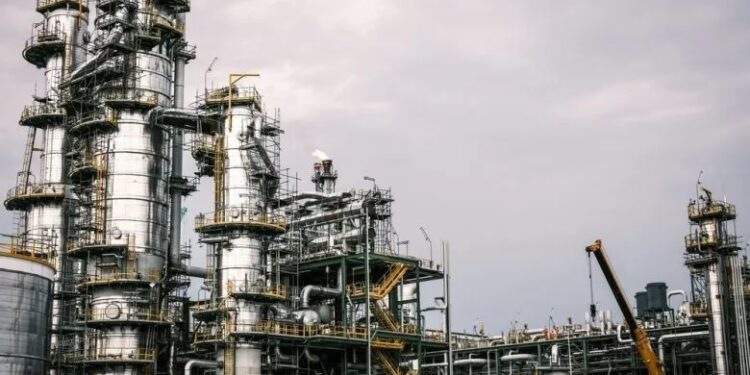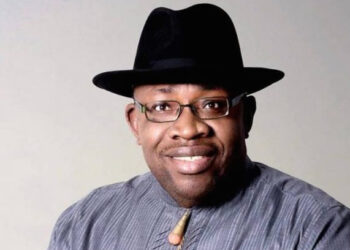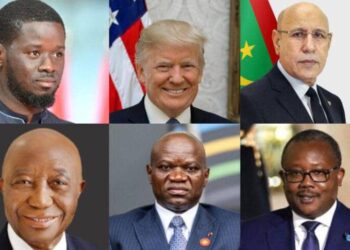Nigeria is placing its hopes on a colossal new refinery, constructed by Aliko Dangote, the wealthiest individual in Africa, to eradicate its $26 billion foreign-exchange expenses for petroleum products and fertilizer imports.
Speaking at the commissioning ceremony in Lagos on Monday, Dangote announced that the facility, with a capacity of 650,000 barrels per day and encompassing a petrochemical and urea fertilizer plant, along with a subsea pipeline, is poised to begin supplying the market with its initial products as early as July.
Despite being the leading oil producer in Africa, Nigeria relies heavily on imports for nearly all of its petroleum products due to the long-standing operational issues plaguing its refineries.
Governor Godwin Emefiele revealed that the import bill for refined petroleum products alone averaged $11 billion between 2014 and 2017, which surged to $23.3 billion last year.
An additional $3 billion was spent on fertilizer and other petrochemicals.
Emefiele cautioned, stating, “At this rate, the average annual cost of petroleum products imports to Nigeria could reach $30 billion by 2027 if we continued to rely on petroleum imports.”
Dangote expressed confidence that his refinery, which stands as the largest on the continent, will meet the domestic fuel demand of approximately 450,000 barrels per day by year-end.
Once the plant reaches full operational capacity, he stated that 40% of production would be earmarked for export, without specifying a timeline.
This development presents Dangote with the opportunity to dominate the refined petroleum products sector, much like he has done with cement and sugar, where he effectively controls these markets in Africa’s largest economy.
The refinery, situated within a free-trade zone in the nation’s commercial hub, was initially proposed in 2013 but construction did not commence until 2017.
Several delays pushed back its completion, ultimately causing a seven-year delay from its original projected deadline of 2016.
The construction cost amounted to $18.5 billion, with Dangote contributing 50% of the equity funding and the remaining funds raised through debt, primarily from local banks.
Currently, only around $3 billion in liabilities remain outstanding, as Dangote has already paid down the majority of the debt prior to the refinery commencing operations, as disclosed by Emefiele.
According to documents distributed at the commissioning, the fully operational complex is projected to generate annual income of up to $21 billion.
Muhammadu Buhari, who concludes his eight-year tenure as Nigeria’s president next week, praised the refinery as a “significant milestone for Nigeria’s economy and a game-changer for the downstream petroleum products market in the entire African region.”



































